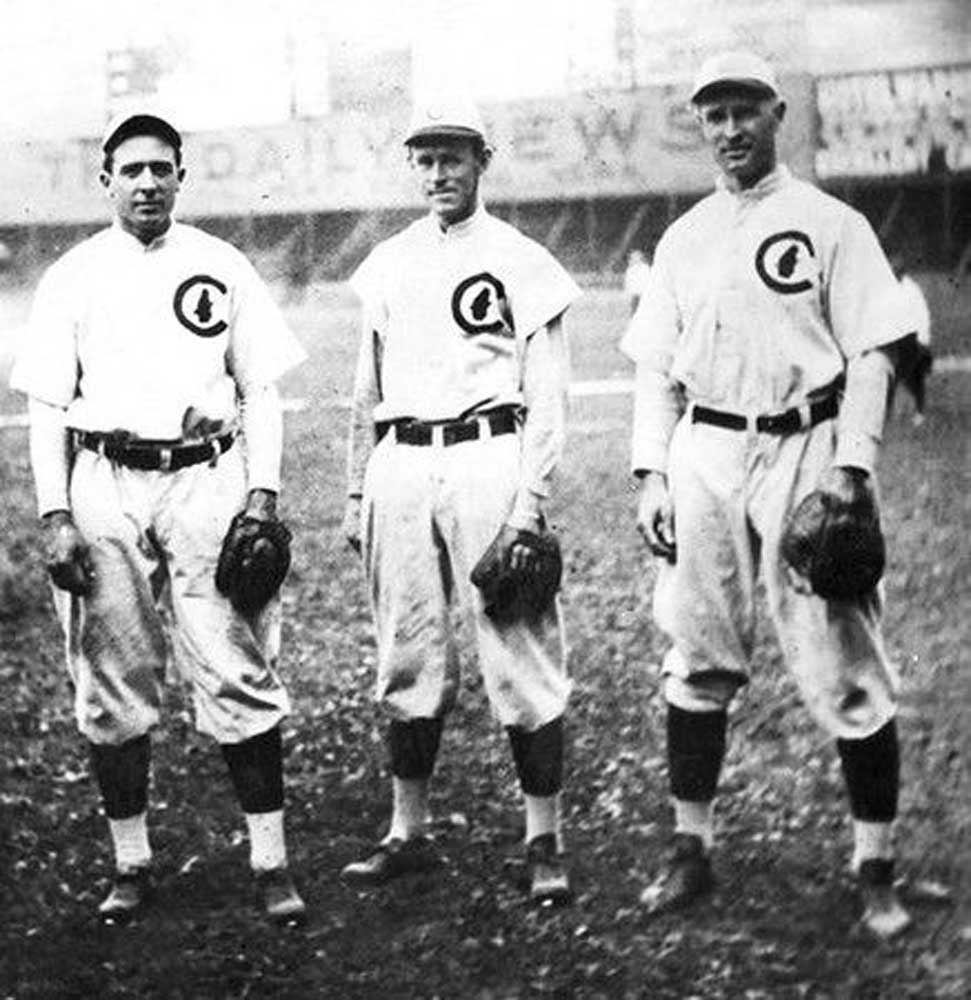Editorial: When baseball inspires poetry
Published 4:19 pm Thursday, November 3, 2016

- AP file photo, dated 1910
There was a time when baseball inspired poetry. And Game 7 of the World Series Tuesday night should do so again. With Shakespearian drama, operatic heroes and a storybook season for each of the competing teams, Game 7 brought to mind the best sports writing – and sports poetry – of the past.
One of the more famous was called “Baseball’s Sad Legacy,” by New York columnist Franklin Pierce Adams. But most of us know it simply as “Tinker to Evers to Chance,” written in 1910.
The “sad legacy” part was from the perspective of Adams’ beloved New York Giants, which often faced the Chicago Cubs’ double-play machine consisting of shortstop Joe Tinker, second baseman Johnny Evers and first baseman Frank Chance.
These are the saddest of possible words:
“Tinker to Evers to Chance.”
Trio of bear cubs, and fleeter than birds,
Tinker and Evers and Chance.
Ruthlessly pricking our gonfalon bubble,
Making a Giant hit into a double –
Words that are heavy with nothing but trouble:
“Tinker to Evers to Chance.”
Writing for MLB.com, Tom Singer explained the genesis of the poem.
“Myth and reality intersected a century ago at second base at West Side Grounds, the Chicago Cubs’ pantheon in the early 1900s,” he wrote. “The North Side chorus had for years hummed the praises of the heart of the National League terrors – and then it was handed lyrics by a frustrated, short-winded New York reporter.”
Singer says that Adams’ poem helped turn the trio into Hall of Famers.
there is no debate about the roles of Messrs. Tinker, Evers and Chance on the powerhouse Cubs of the turn of the last century, and thus their ranks in Cubs history.
“They are the Three Horsemen of this Apocalypse, the National League of 1906-1910,” Singer wrote. “The Cubs clubs of those five seasons combined to win 530 games, four pennants and consecutive World Series, and their constants were the synchronized middle infielders and the first baseman who multi-tasked as the Cubs’ manager.”
The Tinker-to-Evers-to-Chance combo helped win the Cubs their last World Series – until Tuesday.
But the trio had an influence even 108 years later, Singer adds.
“Tinker, Evers and Chance, because of the unexpected impact they often had on games, are credited with first making people notice the importance of defense,” he wrote. “They also had a practical influence – originating, for instance, the first crude version of the ‘rotation play’ to defend bunts.”
Their team’s record stood for nearly a century. As Singer pointed out, “the 1906 Cubs posted 116 wins, a record matched 93 years later by the Seattle Mariners, who needed 10 more games to do it.”
As for “Baseball’s Sad Legacy,” Adams’ poem was reprinted and revised throughout the years, with other sportswriters adding verses and ideas. It was common, in those days, for journalists to hone their prose by writing poetry (think “Casey at the Bat,” by Ernest Thayer).
What will sportswriters pen about the 2016 Cubs? We can’t wait to read it.






